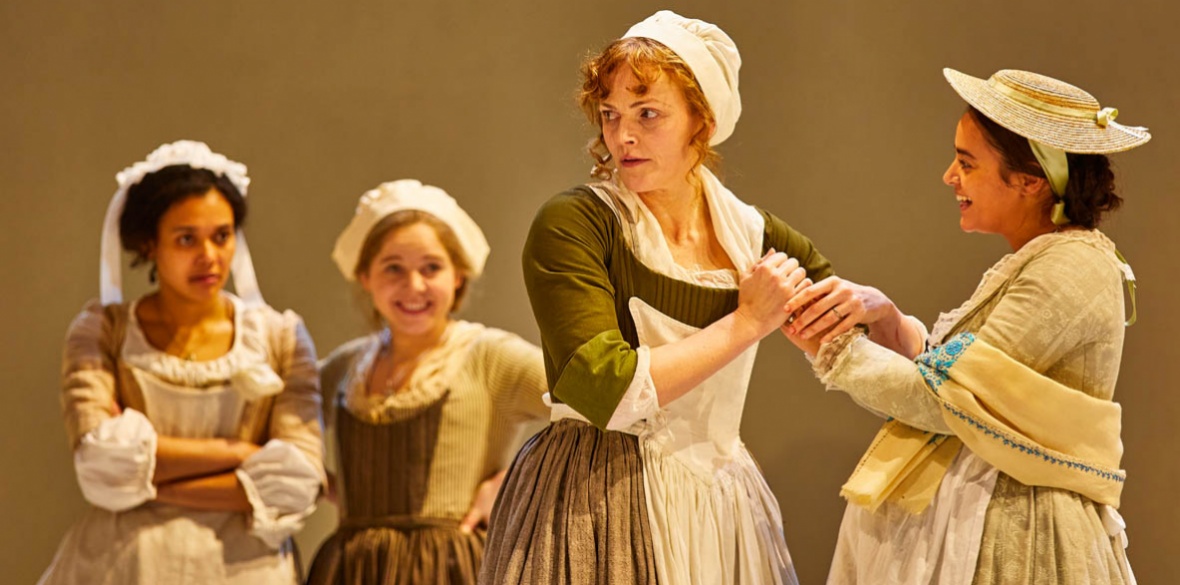This is the last article you can read this month
You can read more article this month
You can read more articles this month
Sorry your limit is up for this month
Reset on:
Please help support the Morning Star by subscribing here
THE MONOCHROMATIC, yet stylish, opening scene of a dozen women isolated in their daily drudgery in Lucy Kirkwood’s new play initially appears to be heading towards well-worn territory — the trial format of Twelve Angry Men.
But those brought together are a “jury of matrons” and their role is to decide whether the guilty woman in front of them is pregnant. If she is, she escapes the noose for transportation instead.
With only the nominal supervision of a muted court official, this eclectic group is temporarily released from daily oppressive routines to freely argue another woman’s fate.
Prejudices abound over the foul-mouthed and unsympathetic accused woman Sally Poppy, played with naked hostility by Ria Zmitrowicz, and it is left to Maxine Peake’s commanding presence as Lizzy Luke, the local no-nonsense midwife, to fight her corner.
Her passionate and essentially liberal approach to the woman’s guilt is in stark contrast to the values displayed by many of the others.
Haydn Gwynne’s aloof presence as a supposed well-to-do stranger to the town offers a focal point to the group set against Sally and she’s supported by Cecilia Noble’s outspokenly dismissive and amusingly pretentious Emma. Among the waverers are Dawn Sievewright’s independent, strong-willed Kitty and June Watson as the older matriarch Sarah.
Although their opinions and individual circumstances divide them, it is their unifying warmth as a sisterhood bonded by childbirth that unites them and generates much of the passion and unexpected humour.
James MacDonald directs an outstanding cast, clearly revelling in their strongly differentiated roles, and unites them in fleetingly recognisable tableaux of 18th-century life.
Bunny Christie’s diverse and atmospheric sets, imaginatively framed to create differing perspectives, and Carolyn Downing’s immersive background soundscapes add to the style and substance of this excellent production.
The twists and revelations maintain suspense throughout but they are far more than functional elements of a courtroom drama.
Set in 1759, on the predicted eve of the reappearance of Halley’s comet and the sense of growing scientific and financial empowerment, the women’s interactions reveal their strength and fortitude in the face of an oppressive male-dominated world.
The outcome does not forsake convention. But it moves beyond it to a haunting climax, as original as it is memorable.
Runs until May 23, box office: nationaltheatre.org.uk











